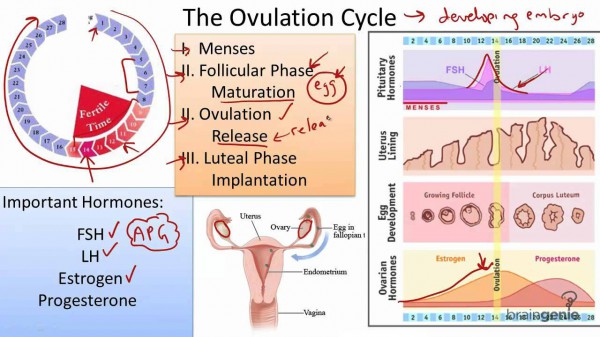We often wonder if there are alternatives for hormone replacement therapy. The answer is – Yes! There are two primal forms: synthetic and natural hormone replacement therapy.
Synthetic hormone replacement therapy drugs aren’t the same as natural hormones produced by the body. Natural substances cannot be patented, so pharmaceutical companies create new substances with molecular structures. But, these synthetic drugs can’t be alternative replacements and treatments for menopause. They are different from natural hormones and differently treated by the body, so side effects appear.
Natural alternative hormone replacement therapy is the therapy with natural estrogen or progesterone hormones which are bioidentical. They are recommended by many doctors because are received and eliminated by the body as necessary. Most women don’t need synthetic drugs to eliminate the symptoms of hormone imbalance, respectively when in menopause.
In a healthy woman’s body, with a regular menstrual cycle, estrogen is the main hormone produced in the first 10-12 days after the previous menstrual cycle. When ovulating, the body starts to secrete progesterone in the following 12 days. If pregnancy doesn’t occur in this period, the level of hormones estrogen and progesterone is lowered by the 28th day and the next menstrual cycle starts. However, if there isn’t ovulation, progesterone won’t be secreted in the body. This event is called an ovulatory cycle happening to women between 30-40 years of age. No ovulation and no progesterone.
 With the lowering of progesterone level, the level of estrogen increases, and an imbalance of women’s hormones occurs.
With the lowering of progesterone level, the level of estrogen increases, and an imbalance of women’s hormones occurs.
If the woman has a hysterectomy, surgical menopause means the body produces little progesterone or doesn’t at all creating hormone imbalance. With postmenopausal women, the production of progesterone stops when there isn’t ovulation. However, still, the production of estrogen will occur in the interval between 40-60% as it was before the occurrence of menopause.
How To Learn About Hormone Replacement Therapy – Natural Alternatives?
Consult with a naturopathic doctor, trained in both, conventional medicine and natural alternative medicine. If you are on synthetic hormone replacement therapy and want to replace it with natural hormone replacement therapy, you are obligated to consult yourself for using natural hormone replacement therapy with a naturopathic doctor. However, they will know what treatment is best for you and they will decrease side effects at minimum.
This is an overview of natural alternatives of hormone replacement therapy:
Soybeans – from health food stores: tofu, tempeh, miso, soy milk, and roasted soy nuts. Avoid soy powder because there still isn’t concrete research on its benefits. Experts advise that Japanese women eating large soy amounts suffer less from hot flashes than the rest.
Black Cohosh – Many herbalists indicate this plant as an efficient remedy for many diseases connected to menopause. A study shows that 80% of women tested for intake of black cohosh have lowered the average hot flashes number from 5 to 1. Research has shown that in the menopause phase, black cohosh doesn’t give negative effects such as vaginal dryness or changes in reproductive hormones. But, still, The National Center for Complementary and Alternative Medicine indicates that there isn’t scientific evidence of the efficiency of black cohosh for releasing from symptoms of menopause.
Dong Quai – This Chinese plant is often promoted as a treatment against symptoms of menopause. Still, one scientific study has shown it hasn’t got an effect over hot flashes protection in postmenopausal women if used independently. Dong Quai can be bought in powder, pill, or tincture form. But, using it independently or with commercially prepared products doesn’t have a positive effect, it can even cause side effects – skin rash or heavy menstrual bleeding. If you want to try this remedy necessarily consult a Chinese herbalist who will prescribe you the proper combination of plants, adjusted to your needs.
Herbal Cocktails – A mixture of different plants released from different menopausal complaints. These are most often mixtures of ginseng, fenugreek, red clover, licorice, flaxseed, sarsaparilla, or chaste-tree berry. Still, there is little data about their efficiency and safety.
If you decide on an alternative treatment, you must be patient – expect effect after 12 weeks.
To ease yourselves from unpleasant menopausal symptoms eat food rich in calcium, low-fat food, don’t smoke, don’t drink alcohol, and exercise regularly. All this is crucial against heart diseases and bone loss at bay. Many postmenopausal women have lowered this stress by practicing yoga. Try it!!!




